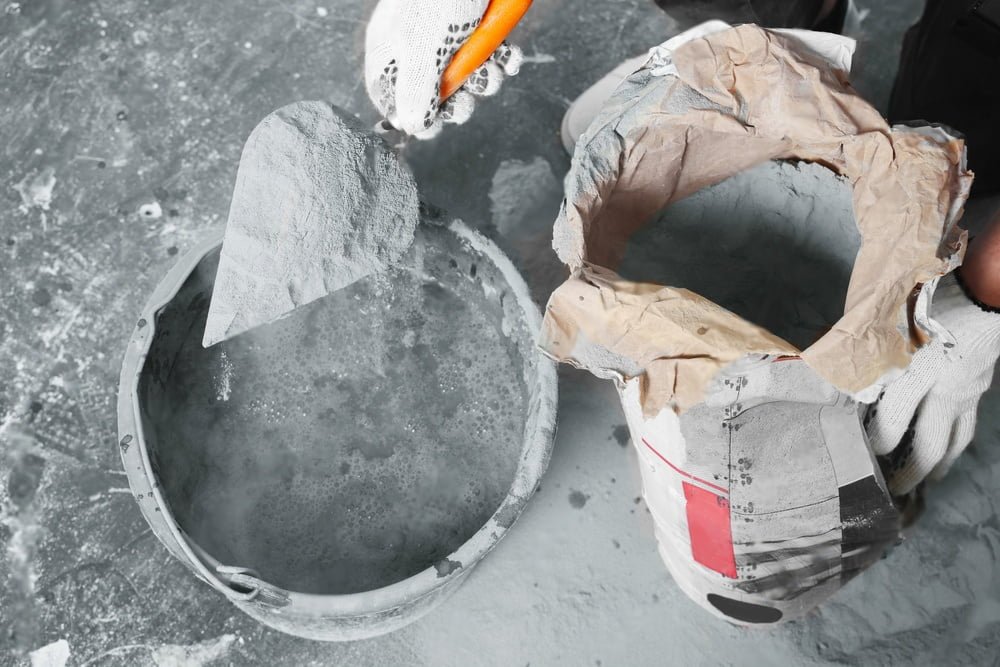
Understanding how to mix cement properly when it comes to home improvement projects is important in achieving optimal results. Whether you are setting up a new brick or stone structure, repairing a cracked wall, or pouring a concrete slab, the quality of your mortar or concrete mix will influence the durability of your project. This guide will explore how to mix cement to make mortar concrete, ensuring you get the right consistency and strength for your needs.
Just before we move to the mixing process, it is important we know the difference between mortar and concrete.
Mortar: This is a mixture of sand, cement, and water. This mixture is used to bond bricks, stones, and other masonry units. The work of mortar is to hold these materials together and fill gaps between them, but it does not give structural support on its own.
Concrete: This is a mixture that involves sand, cement, gravel, and water. This mixture is used to constitute slabs, foundations, sidewalks, and other structural elements due to its durability.
You will need the following materials to mix cement:
Always bear in mind that the amounts of each material depend on the size of the job you want to get done, and how much mortar or concrete you want to mix.
After you have gotten all the ingredients for mixing cement, it’s necessary to also get the following safety equipment:
Have you gotten the listed equipment? Then let’s keep moving.
You can apply the use of a power washer or hosepipe to clean excess mortar or concrete mix off your mixing board and tools, use your stiff bristle brush to scrub them.
A concrete mixer also called a cement mixer, is a machine used to mix cement, sand, aggregate (sand or gravel), and water when poured inside of it to form concrete.
Cement mixers can be used for larger projects. Below are a few tips for using a cement mixer:
Mixing cement to create mortar or concrete involves a precise balance of materials to achieve the right strength and consistency. Mastering the art of mixing cement is a skill that might be useful to one and can save you some real cash.
If you notice your concrete is too dried or wet, it will be difficult to work with, and may not flow properly. To adjust, an amount of water should be added to the mixture until your desired consistency is achieved. If the other way round is the case, it may become too weak, and to fix this, you can add some dry concrete mix to balance out the water content.
No, you should not use the same mix for both mortar and concrete. Both have different ratios and ingredients.
Mortar takes about 30 to 60 minutes to set, but the temperature and humidity also matter here, however, it takes about 24 to 48 hours to cure fully and get its final strength. Concrete on the other hand takes about 2 to 4 hours to set, about 7 days to reach a certain portion of strength, and up to 28 days to achieve full strength. Curing time varies based on factors such as humidity, temperature, and mix proportions.
At Concrete King our team of experienced, highly trained, and fully certified experts have got you covered in all matters concerning concrete.
Clients across London, Kent, Essex, and beyond, have trusted us with their concrete floors and were glad they did, as we are known for delivering ready mixed premium quality concretes. We don’t just deliver to our clients, we deliver with our state-of-the-art Vehicles, and our deliveries are swift.
Have any questions about concrete or want to mix concrete flooring, slab, or any related concrete jobs? Worry no more we have you covered. Speak to us today our agents are always ready to be of assistance!
Whether it’s the amount of ready mixed concrete to be used for concrete slabs, or working out how much needs to be combined with coarse aggregate, we’ve got the solution.
To place your order or to discuss your requirements further please contact our friendly team today who will be happy to help with the concrete mix calculator.
Visit our Concrete Calculator page where you can access more calculate options.



